Damaged Differential
Experiencing Issues with Your Differential? We’re Here to Help! We Buy Vans with Damaged Differentials. Get a Fair Offer and a Convenient Solution – Sell Your Van to Us Today!
A damaged differential can be a significant issue for any vehicle, including vans. The differential plays a crucial role in transferring power from the engine to the wheels while allowing them to rotate at different speeds.
When a differential becomes damaged, it can lead to various problems such as strange noises, vibrations, or even complete loss of power to the wheels.
Addressing this issue promptly is essential to ensure the safe operation of your van.
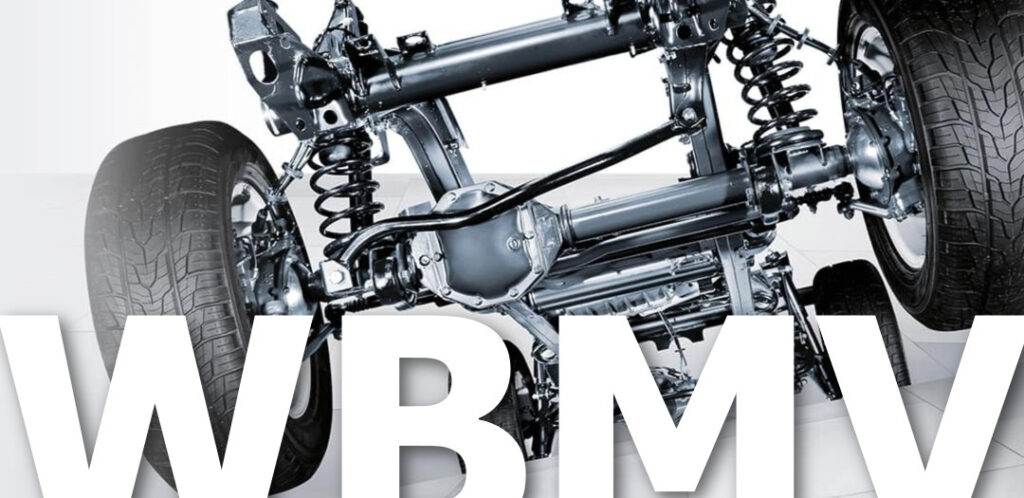
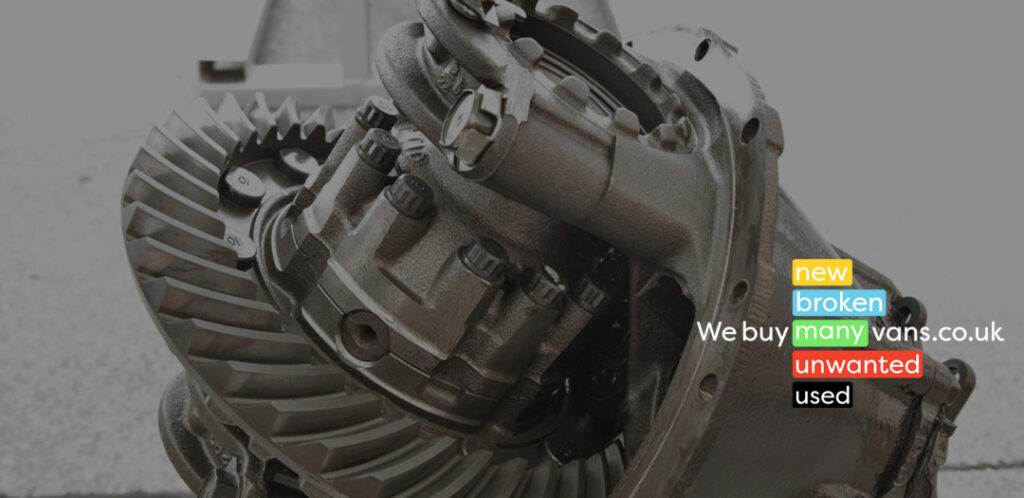
If you find yourself dealing with a damaged differential and are considering selling your van, worry not! We understand the challenges you may be facing and are here to help. At We Buy Many Vans, we specialise in purchasing vans in various conditions, including those with damaged differentials.
Our team of experts is experienced in assessing vehicles and providing fair offers based on their condition. So, if you’re looking to sell your van quickly and conveniently, don’t hesitate to reach out to us.
We are eager to assist you in your selling process and provide a hassle-free experience.
Differential Problems: Signs of a Damaged Differential and How to Spot Them
Differential problems can be a major headache for van owners. These issues often manifest as strange noises, vibrations, or difficulty turning. If you suspect that your differential is damaged, it’s important to take action right away before the problem gets worse.
One common sign of a bad differential is a grinding or whining noise coming from the rear of the vehicle.
This could indicate worn gears or bearings that are no longer functioning properly. Another symptom is vibration when driving at high speeds or while turning corners. This may be caused by an unbalanced drive shaft or worn-out U-joints.
If you’re experiencing any of these symptoms, it’s important to have your differential inspected by a professional mechanic as soon as possible. Ignoring these warning signs can lead to more serious problems down the road and even put your safety at risk while driving on the roadways.
Understanding Differential Problems: Common Bad Differential Symptoms and How to Fix Them
Common Van Faults: When it comes to differential problems, one of the most common signs of a damaged differential is noise. A whirring or rumbling sound coming from your front or rear differential can indicate a problem with worn bearings or gears. Another sign of a failing front or rear differential is vibration while driving, especially at high speeds. If you notice any of these symptoms, it’s important to have your vehicle inspected by a professional mechanic.
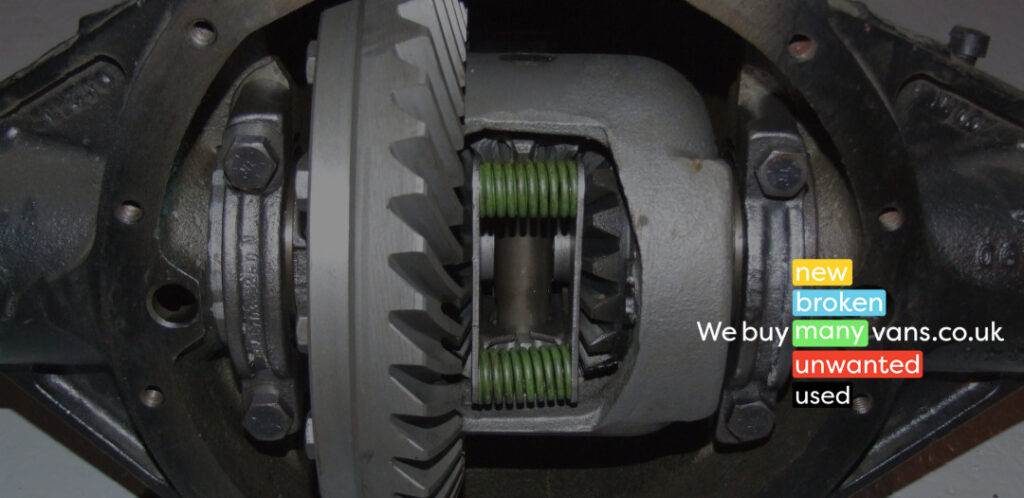
If your van’s differential needs to be repaired, there are several options available depending on the severity of the issue. In some cases, replacing damaged parts such as bearings or seals may be enough to fix the problem. Other times, more extensive repairs such as rebuilding the entire axle may be necessary.
It’s important to address any issues with your van’s differential promptly in order to avoid further damage and costly repairs down the line.
To prevent future problems with your van’s differential, regular maintenance is key. This includes checking and changing the fluid in your rear differential according to manufacturer recommendations and having routine inspections performed by a qualified mechanic.
By staying on top of these tasks and addressing any issues promptly when they arise, you can help ensure that your van’s drivetrain remains in good condition for years to come.
Front or Rear Differential Issues: What You Need to Know
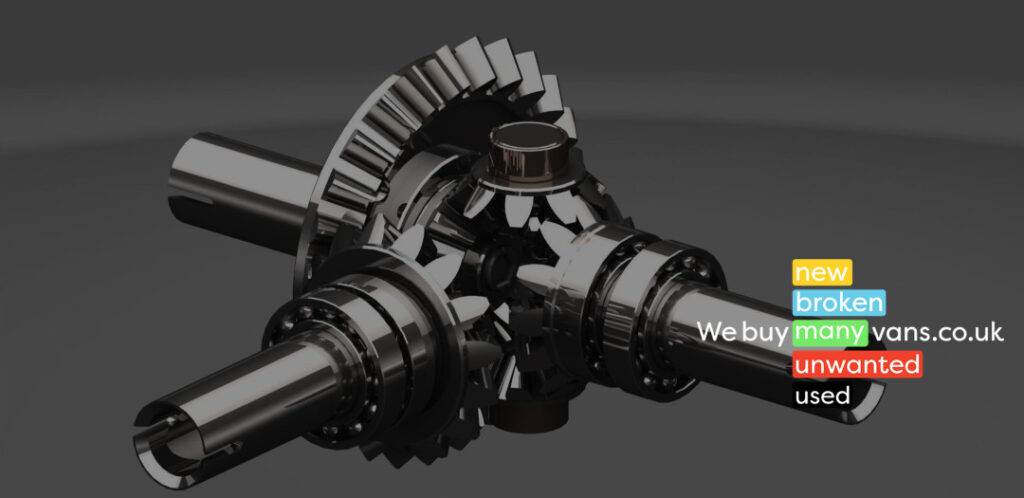
When it comes to differential problems, one of the most common issues is a broken differential. This can happen when there is too much stress on the gears or when they become worn down over time. When this occurs, you may notice vibrations or whining noises coming from your vehicle’s rear or front end. It’s important to address these symptoms as soon as possible before further damage occurs.
Another potential issue with differentials is worn bearings. These components help support and guide the axle shafts within the differential housing.
Over time, they can wear down and cause a variety of issues such as abnormal sounds, vibration, and even loss of control while turning corners. Regular maintenance and proper lubrication can help prevent premature bearing failure.
Speaking of lubrication, gear oil plays a crucial role in keeping your van’s differential functioning properly. Without enough oil or with contaminated oil, friction between the gears can increase which leads to overheating and eventual failure.
Be sure to follow manufacturer recommendations for changing out your gear oil at regular intervals to avoid any unnecessary headaches caused by lack of proper lubrication in your differential system.
Sell Your Van In Three Easy Steps
Hassle-Free Selling Process
01.
Get a quote
02.
Schedule a pickup
03.
Get paid
Differential Repair: How to Fix a Broken Differential
When a differential goes bad, it can cause a variety of issues with your vehicle’s drivetrain. One common symptom is a clunking noise when shifting gears or accelerating. This could be caused by worn bearings or other damaged components within the differential. If you notice this sound, it’s important to have your front or rear differential inspected as soon as possible.
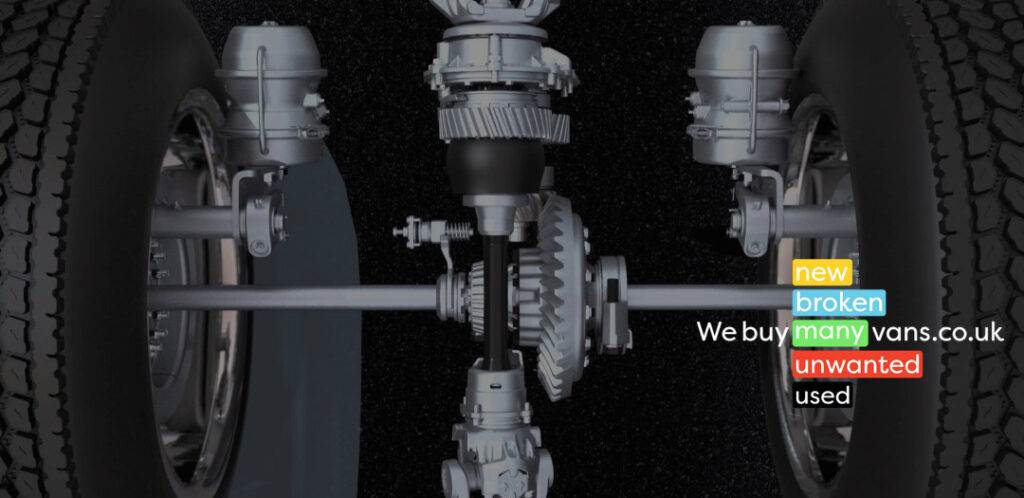
Another sign of a failing front or rear differential is whirring noises coming from underneath your van. This could indicate that there isn’t enough lubrication in the differential oil or that there are damaged gears within the unit. To fix this issue, you will need to drain and refill the differential oil with fresh fluid and inspect for any damaged parts that may need to be replaced.
If you suspect that your driveshaft may also be affected by a bad differential, it’s important to have both components inspected together. The torque between these two parts can cause wear and tear on each other over time, leading to further damage if left unchecked. In some cases, repairing one component without addressing issues in the other can result in continued problems down the line.
The Importance of Proper Lubrication for Your van's Differential
Proper lubrication is essential for your van’s differential to function correctly. The differential needs oil to reduce friction and heat, which can cause damage if left unchecked. Without proper lubrication, the pinion and ring gear will wear out quickly, causing the differential to go bad.
If you suspect that your van’s differential is not functioning correctly, it may be due to a lack of proper lubrication. A faulty differential can cause many problems such as noise when turning corners or accelerating from a stop. If you notice any sign of a failing or damaged differential, it’s important to take your vehicle in for repair immediately.
Differential repair can be costly if the issue has progressed too far without being addressed. Regular maintenance and inspections by a qualified mechanic can help prevent expensive repairs down the road. By keeping up with regular oil changes and ensuring that there are no leaks in the system, you can extend the life of your van’s wheels and avoid potential issues caused by differential failure or damage.
Differential Noise: Whirring, Rumbling, and Other Sounds You Shouldn't Ignore
One of the most common signs of a failing differential is strange noises coming from it. Differential noises can range from whining sounds to rumbling and even grinding sounds. These noises are usually indicative of worn or damaged differential parts, such as bearings or gears.
If your van’s differential has gear oil that is low or old, this can cause the differential to overheat and create noise. Additionally, worn u-joints on an open differential can also be a source of noise. It’s important to address any unusual sounds coming from your van’s differential promptly to avoid further damage.
Ignoring differential noises can lead to serious problems if left unchecked for too long. If a failing differential goes bad completely while driving, it could cause your vehicle to lose control and potentially result in an accident. As soon as you notice any common bad differential symptoms like whirring or rumbling sounds, take your van into a mechanic for inspection immediately before the problem worsens.
How to Keep Your van's Differential in Good Condition
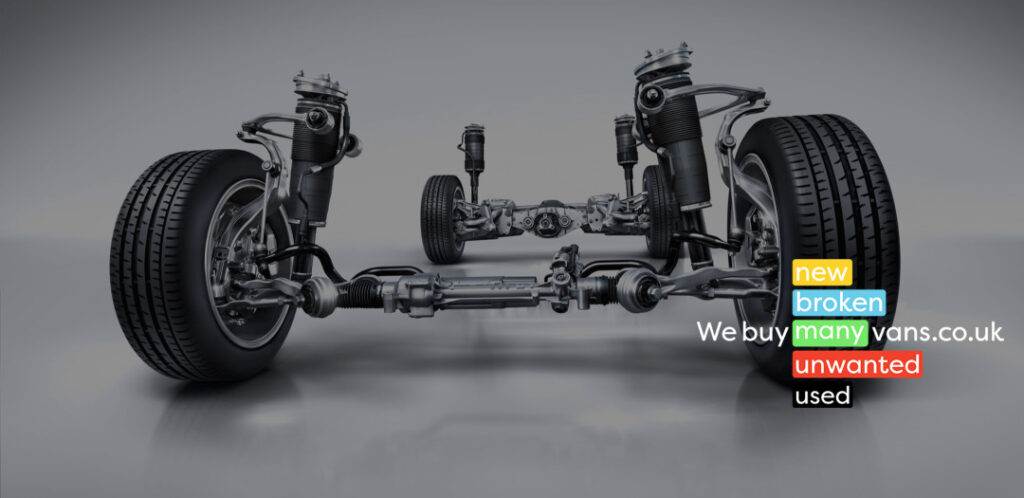
Regular maintenance is crucial to keeping your van’s differential in good condition. One of the most important things you can do is to check the fluid level and quality regularly. Low or dirty fluid can cause a variety of problems, including excessive wear on differential gears, which could lead to a broken differential.
Another way to keep your differential in good condition is by avoiding putting too much stress on it. This means being mindful of different speed limits and terrain when driving your vehicle. For example, if you’re driving up a steep hill, try shifting down into a lower gear rather than flooring it and causing a bang as the transfer case tries to adjust for the different speeds between front and rear wheels.
It’s also important to pay attention to any noises that may indicate problems with your van’s differential. Whirring or rumbling sounds could mean that there are issues with worn bearings or other components within the differential itself. By catching these issues early on, you can prevent further damage from occurring and potentially avoid costly repairs later on down the line.
What Happens When Your Differential Goes Bad: Causes and Effects
When your van differentials go bad, it can cause a range of issues that affect the performance and safety of your vehicle. One common cause is worn vanrier bearings, which can lead to rumbling or whining noises coming from the differential. If left unchecked, this problem can also damage other parts of your van’s drivetrain.
Another effect of a damaged differential is that the front wheels may no longer rotate at the same speed as the rear-wheel drive system. This can make it difficult to control your van when turning or braking, especially in wet or slippery conditions. It’s important to keep your van well-maintained and address any problems with the differential promptly to avoid these types of accidents.
Finally, driving too fast or putting too much stress on your engine can also cause wear and tear on gaskets and seals in the differential housing. Over time, this can lead to leaks that allow lubricating fluid to escape from the differential. Not only does this reduce its effectiveness at protecting against friction and heat buildup inside the housing but it also causes additional damage if left untreated for long periods of time.
Differential Maintenance: Worn Bearings and Other Common Problems
One of the most common issues with differentials is worn bearings. This can be caused by a lack of lubrication, which allows metal-on-metal contact and wears down the bearings over time. A whirring noise from the differential is often a sign of this problem. If left unchecked, it can lead to more serious problems with the differential’s ability to turn and transfer power to the wheels.
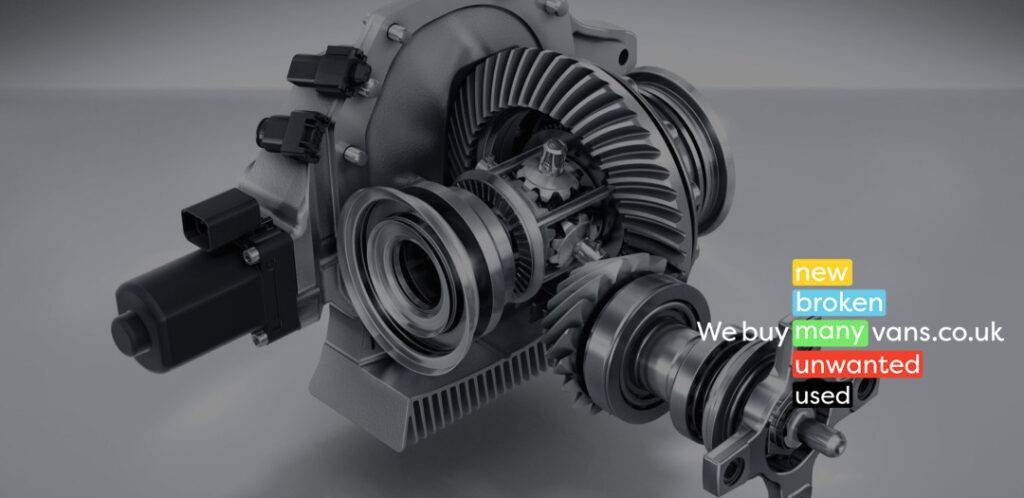
Another common issue that affects both front and rear differentials is preload. Preload refers to the amount of force applied to certain parts within the differential in order to keep them properly aligned. When preload becomes too loose or too tight, it can cause rumbling or whirring noises as well as uneven tire wear. Fortunately, checking for proper preload is fairly easy and can help prevent more serious problems down the line.
Finally, worn transfer case or pinion bearings are also many common problems that drivers may experience with their differentials. These issues often manifest themselves through strange noises coming from under your vehicle while driving at various speeds; however, these sounds may change depending on what gear you’re in or how fast you’re going. Keeping an eye out for any unusual sounds emanating from your van’s drivetrain is important because catching these issues early on makes them much easier (and cheaper) to fix than waiting until they become major headaches later on!
The Role of the Differential in Your Vehicle's Drivetrain
The differential is an essential component of a vehicle’s drivetrain. It allows the wheels to turn at different speeds when cornering, preventing tire wear and improving handling. However, several common problems can occur with the differential that can affect the performance of your vehicle.
One of the most noticeable signs of a problem with the differential is a whining noise coming from the back wheels. This sound may increase in volume as you accelerate or decelerate and could indicate worn bearings or damaged internal parts. Additionally, vibrations that increase with speed can also be caused by issues with spider gears or other components within the differential.
Proper lubrication is crucial for maintaining your van’s differential and preventing problems like those mentioned above. Without enough oil, metal parts will rub together, leading to excessive wear and tear on internal components. Off-road vehicles are especially susceptible to damage due to their rough terrain usage and require more frequent maintenance checks than standard passenger vans. Regularly checking oil levels and ensuring proper lubrication can help prevent costly repairs down the road.
Damaged Differential Frequently Asked Questions
The differential is responsible for distributing power evenly to the wheels while allowing them to rotate at different speeds, especially when turning.
Some signs of a damaged differential include strange noises, vibration, difficulty turning, and uneven tire wear.
Yes, differential problems can be fixed through repairs or replacements.
Differential problems can be caused by a variety of factors such as lack of lubrication, worn bearings, and damaged gears.
No, it is not safe to drive with a damaged differential as it can cause further damage to the vehicle and endanger the driver and passengers.
It is recommended to have your differential inspected at least once a year or as per the manufacturer’s recommendation.
Yes, you can change the differential fluid yourself, but it is recommended to follow the manufacturer’s instructions and use the proper fluid type.
Regular maintenance of the differential, including proper lubrication, can help prevent differential problems. Additionally, avoiding harsh driving conditions can also prolong the life of the differential.
The cost of differential repair or replacement can vary depending on the severity of the problem and the type of vehicle. It is best to consult with a professional mechanic for an accurate estimate.
Yes, a differential can be upgraded for better performance through modifications such as adding a limited-slip differential or changing the gear ratio.
Sell Your Van Today to We Buy Many Vans
dealing with a damaged differential in your van can be a frustrating situation. However, there is no need to worry! We understand the challenges you may be facing and are ready to offer a solution. At We Buy Many Vans, we specialise in purchasing vans with differential issues.
Our team of experts is experienced in assessing vehicles and providing fair offers based on their condition.
If you are interested in selling your van with differential issues, look no further.
We Buy Many Vans will buy it from you. We value the opportunity to provide a hassle-free selling experience, offering a fair price for your van and ensuring a convenient transaction. So, if you’re ready to sell your van and move forward, reach out to us today.
Don’t let a damaged differential hold you back – let us take care of it while you enjoy a seamless selling process.
Van Troubleshooting Guide: Common Problems from Fuel Pumps to MOT Failures
Here’s the list of van problems in order from most common to least common:
- Fuel Pump Problems
- ECU Problems
- Fuel Injector Problems
- Turbo Engine Problems
- DPF Problems
- Wiring Loom Problems
- Oil Pressure Problems
- Differential Problems
- MOT Failure Vans
- Timing Chain Problems
- Engine Warning Light
- Gearbox Failure
Please note that the order may vary depending on various factors such as the specific van model, maintenance practices, and driving conditions. This list is a general representation of common van problems but may not reflect the exact frequency of occurrence in all cases.